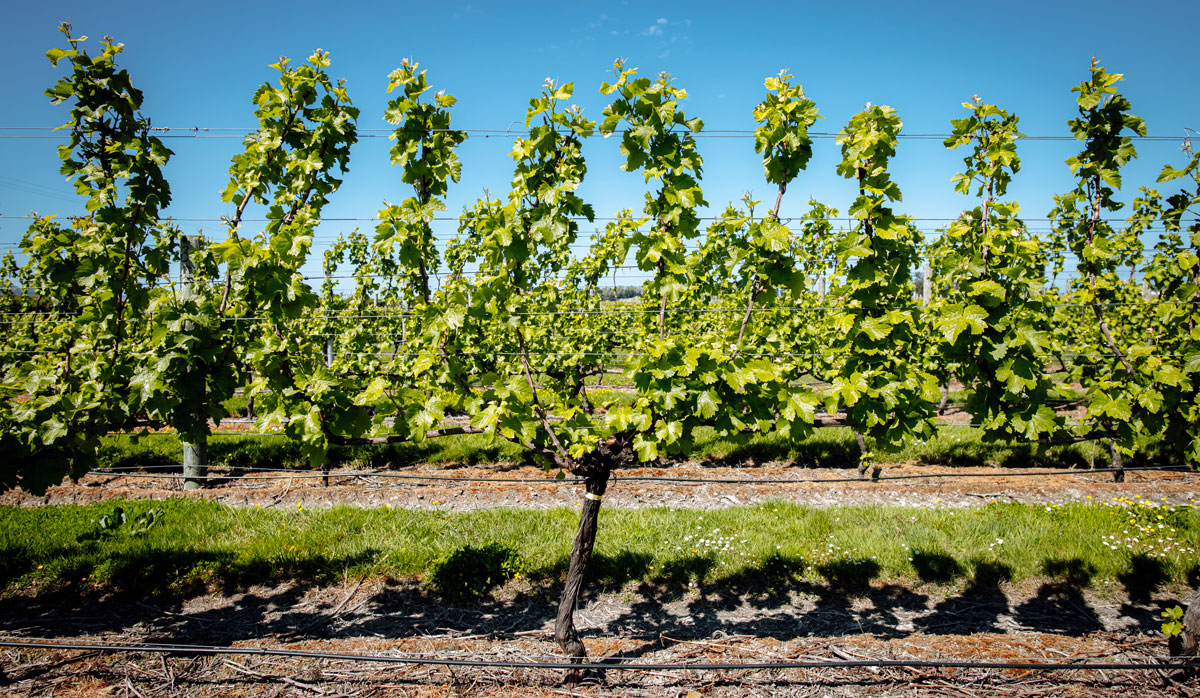MPI Hails Kiwifruit Boom as Horticulture Revenue Surges Past $9 Billion
Ministry for Primary Industries (MPI) Director General Ray Smith is giving a big shout-out to the horticulture sector, especially kiwifruit.
Transforming canopy management systems to maximise sunlight could increase vineyard profitability without compromising wine quality, says researchers.
The Ministry for Primary Industries (MPI) is co-investing $5.6 million over seven years the innovative Next Generation Viticulture programme, in partnership with New Zealand Winegrowers and seven wine businesses contributing cash and in-kind.
Bragato Research Institute (BRI) is contracted to manage and deliver the programme, and Chief Executive Dr Juliet Ansell notes its strong focus on improving vineyard profitability and sustainable winegrowing. “We aim to provide the tools and knowledge for the industry to make better winegrowing decisions.”
Next Generation Viticulture builds on research developed and applied in other New Zealand horticultural crops, including apples and kiwifruit, where canopies are designed to access more sunlight. It will trial several planting and canopy configurations on vineyards throughout Marlborough, building on a two-year pilot project started in 2022. The goal is to maximise light interception by both buds and leaves to increase the number and distribution of high-quality fruiting sites on each vine.
Indevin Director of Winegrowing Patrick Materman says Next Generation Viticulture aims to make New Zealand’s vineyards more productive, “but at the same time, we certainly need to uphold our very high-quality standards and make sure we’re doing things in a sustainable way”. Margins are becoming tighter, with a rising cost of production not necessarily matched by growth in retail prices. “I think we just always need to be looking at new ideas and better ways of working.” He says the benefits could go beyond yield, with potential for less disease with a greater spread in the canopy, “rather than having fruit clumped in one small zone”.
BRI Research and Extension Specialist Dr Paul Epee, speaking at the New Zealand Society for Viticulture and Oenology (NZSVO) Technical Workshop in Marlborough in October, said the wine industry cannot stick to the status quo when the whole world is changing. “We need to embrace change, and that is what this programme is all about.”
 |
|---|
|
A six vertical cane vine in the Next Generation Vineyard programme. Photo Credit: Richard Briggs. |
He and BRI Research Winemaker Ngarita Warden looked at two years of data from a pilot trial site at Cloudy Bay in Marlborough’s Rapaura district. Paul presented vineyard results from the standard three-cane VSP system on the site, as well as the new training systems with six vertical canes, nine vertical canes, and 12 vertical canes, exploring findings on canopy growth, fruit yield, ripening, and juice composition before fermentation. He explained that after two or three years the vine structure will be fully developed at most trial sites, “and that is when we will see how the yield increases more than the control treatment”.
But in the meantime, the results are already quite promising, “because it shows this new training system has great potential”. NZSVO attendees sampled wines from the trial site, made at the BRI Research Winery, with characteristics described by Ngarita. Wine produced from the six vertical cane system and the standard three cane VSP were equally preferred by participants.
On announcing the funding for Next Generation Viticulture, through MPI’s Sustainable Food and Fibre Futures fund, Agriculture Minister Todd McClay said the initiative was about ensuring New Zealand’s wine industry remains a global leader in both quality and sustainability. “This programme will increase productivity and ensure the long-term viability of our wine industry, all while maintaining the exceptional quality we are internationally known for.”
Juliet Ansell says that as the programme develops, BRI will hold regular workshops and field days “to deliver knowledge to the benefit of the wider industry”.
NZSVO - Keeping It Fresh
From emoji-based tastings to vineyard-based robots, and from bag-in-box to low-and-no alcohol wines, the New Zealand Society for Viticulture and Oenology technical workshop held in Blenheim in October stepped the cutting edge of wine science, winegrowing, winemaking, wine packaging and wine retail. Themed Keeping it Fresh, the packed oneday programme, including wine tastings related to each session, included the release of the just-launched Next Generation Viticulture programme. NZSVO committee member Mark Krasnow summed up the power of innovation in an introduction to a session. “New Zealand is famous for fresh wines, but it’s really our fresh ideas that have given us our market share.”
Jimmy Stewart is quite literally chipping away at circularity.
A Wine Marlborough Lifetime Achievement Award is “very premature”, say Kevin and Kimberley Judd, nearly 43 years after they came…
Wine tourism has evolved into a sophisticated, diverse and resilient part of the New Zealand wine sector's economy. Emma Jenkins MW talks…